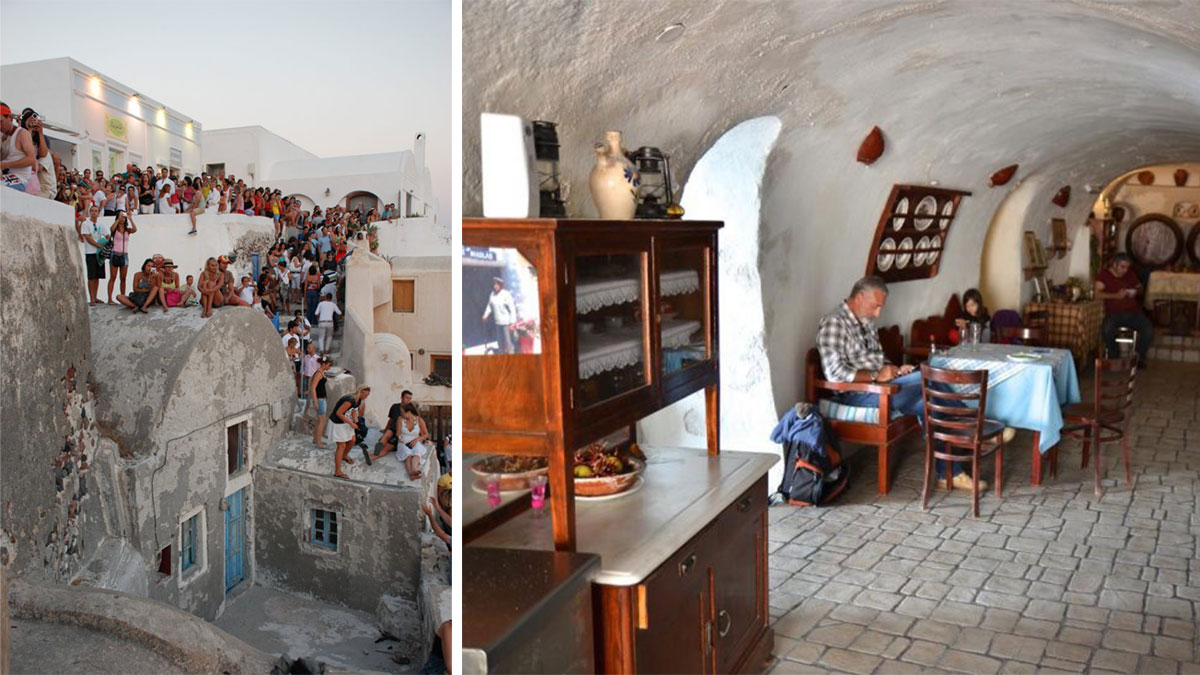Santorini, recently recognized as one of the most picturesque islands in the Mediterranean, is on the verge of possibly exclaiming: “Dear tourists, it’s time to go home!” The problem is that short-term cruise tourists are flocking to this small Greek island paradise, creating massive crowds that paralyze traffic on the streets. And “long-term” visitors seeking to rent accommodation have raised accommodation prices to such an extent that locals are forced to camp in caves and pitch tents on beaches.
Santorini itself has a population of just 15,000 people, and the island attracts around two million visitors each year, meaning that for every resident there are an astonishing 1,333 tourists. As a result, during the season the island’s capital, Fira, is often overcrowded with crowds of people so dense that it becomes almost impossible to move around. The main sources of such crowds are cruise ship passengers. However, as residents and owners of shops on shores frequented by cruise ships complain, these passengers create crowds but do not bring significant money into the local economy.
“We want tourism and money, but these people you see on cruises are not useful – they just block our streets and don’t spend money here because they already have everything, even souvenirs, on the ship,” complains a typical local entrepreneur.
On some of its busiest days, up to 18,000 cruise passengers arrive on the island.
However, when tourists spend money, this is not all smooth sailing either. Dr. Lauren Siegel, a senior lecturer in tourism and events at the University of Greenwich, conducted research into the impact of tourism on the island and found that it was causing inflation by making goods and services unaffordable for most locals, despite the injection of funds into the economy. Housing prices have risen to such an extent that they are pushing residents out of the real estate market. Even the popular Airbnb service has contributed to rising housing prices in Santorini.
“600 euros a month for a small apartment may seem like a good price, but it is half the salary of many locals. Some people have become so desperate that they have to pitch tents on the beach and seek refuge in caves,” said another local.

